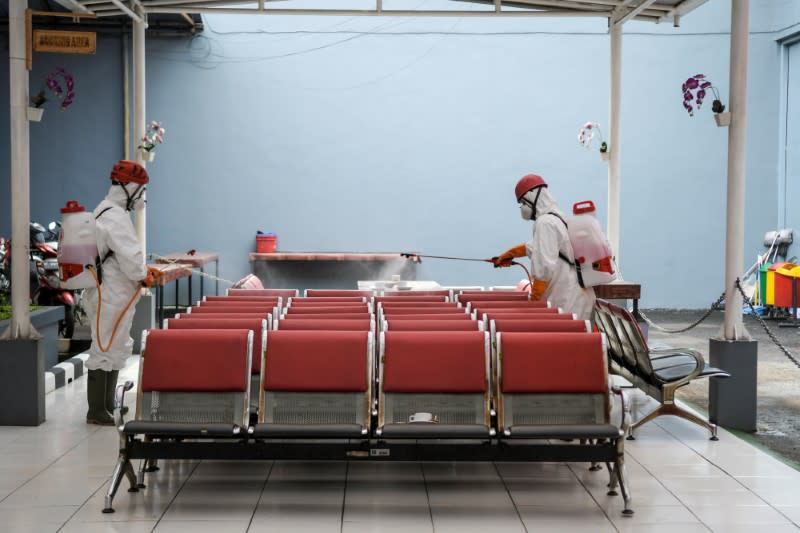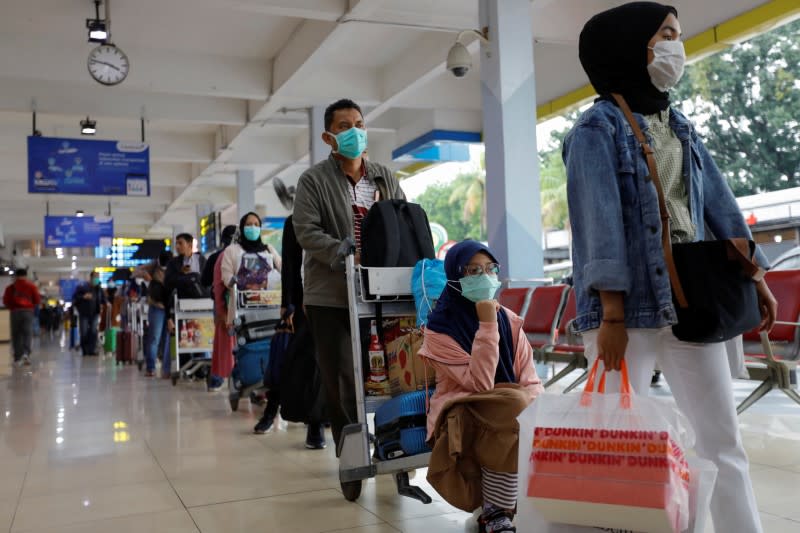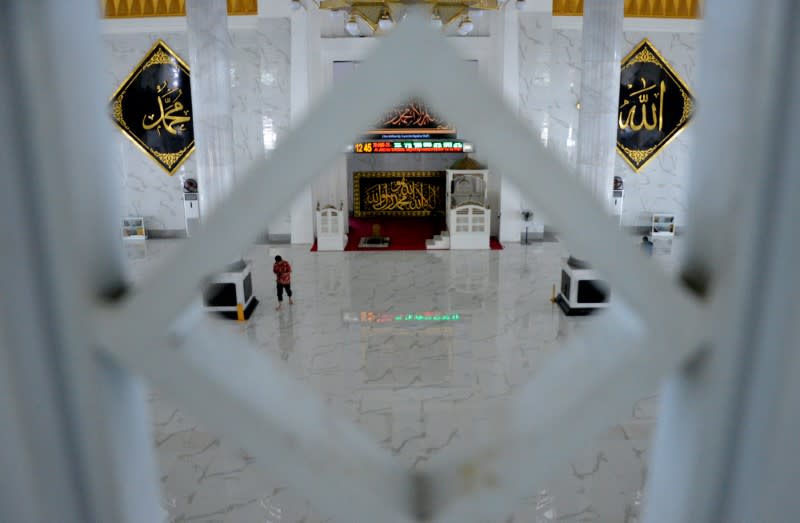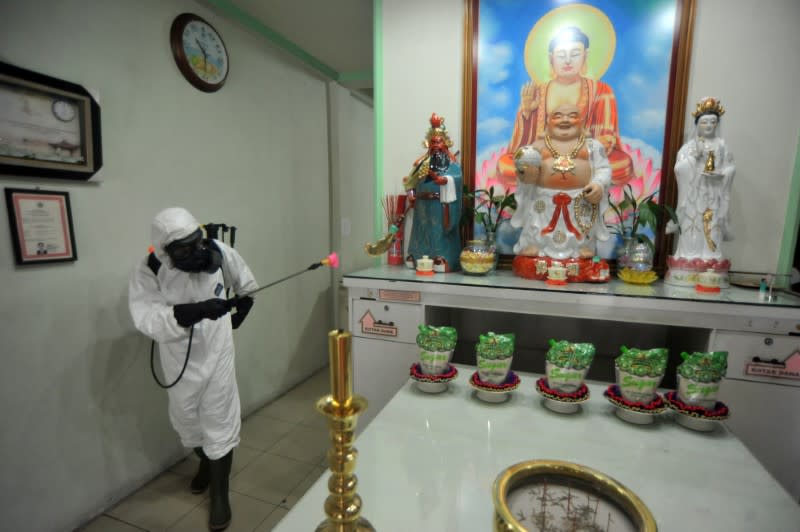Indonesia faces huge coronavirus surge, say experts, as capital declares emergency
By Ed Davies and Stanley Widianto
JAKARTA (Reuters) - Indonesia likely faces a large surge in coronavirus cases after a slow government response masked the scale of the epidemic in the world's fourth most populous country, health experts say, as the capital, Jakarta, declared a state of emergency on Friday.
Less than three weeks after recording its first case, Indonesia had 369 confirmed cases and 32 deaths. Jakarta, a city of 10 million people, had 215 confirmed infections and 18 deaths.
While coronavirus cases and deaths are rising in much of Southeast Asia, Indonesia's population of 260 million people, sprawling landmass and creaking healthcare system make it especially vulnerable.
"Indonesia is likely to have many more cases than currently reported," said Professor Ian Henderson, director of the Institute for Molecular Bioscience at the University of Queensland.
"Without large-scale testing, contact tracing and quarantine measures, the opportunity for spread of this virus is great."
The World Health Organisation has said mass testing is the most effective way of tackling the coronavirus.
Indonesia had tested only 1,898 people as of Friday, or around seven tests per one million people, compared with more than 5,000 per million in South Korea and more than 2,000 per million in Italy, two of the worst affected countries.
Cambodia, which has one sixteenth as many people and less than 2% of its GDP, has carried out nearly as many tests as Indonesia.
'PREPARE FOR THE WORST'
President Joko Widodo's government has increased the number of laboratories authorised to conduct testing from only one in Jakarta to more than a dozen, including on Java island, and in the east of Papua.
Widodo said on Friday he would use "all state power" to tackle the outbreak and that rapid testing was being launched in areas where there were cases.
More testing is likely to expose far more cases and Indonesia should "prepare for the worst", the head of the country's Red Cross told Reuters.
Indonesia has reported only 1.4 cases per million people, compared to 4 per million in Thailand, 28 per million in Malaysia, 219 per million in Iran and 679 per million in Italy, a Reuters analysis of publicly released figures shows.
The ratio of the number of dead to the number of recorded cases in Indonesia at 8.7% is among the highest in the world – even higher than 8.3% in Italy. Medics say it is a likely indicator that cases have gone undetected.
Malaysia and the neighbouring Philippines have introduced strict curbs on movement to try to contain the virus, but Widodo has resisted such a move.
Indonesia, home to the world's biggest Muslim population, saw mass Islamic Friday prayers in some areas, even as countries around the world cancel large gatherings. Jakarta has suspended religious activities, including Friday prayers and Christian services, for two weeks.
Jakarta Governor Anies Baswedan, declaring the state of emergency, said that bars, spas and cinemas would be shut from Monday and public transport limited.
"Our response capability has a limit because the numbers of hospitals and staff are not in line with the growth of cases," he said.
Alvin Lee, an official at the state ombudsman office, which investigates complaints about government agencies, said the government had been "very late, stammering" in its response to the outbreak.
"Because, truthfully, they have wasted time since January," he said.
HERBAL DRINK
Widodo's government has also faced criticism for withholding information. The health ministry announced the results of some patients’ coronavirus status only after their deaths.
Achmad Yurianto, a health ministry official, defended government efforts and denied the response had been late.
He said data indicated only 600,000-700,000 people were at risk from the virus and authorities were monitoring the rate of increase.
"The more we actively look, (the more) the numbers will rise," he told Reuters, adding that one million test kits had been prepared.
Health Minister Terawan Agus Putranto until recently said Indonesia's lack of coronavirus cases was due to a "blessing from the Almighty".
Three patients who had recovered were presented before reporters as evidence that the disease passes. Putranto gave them herbal drinks which he said had been concocted by Widodo to help them stay healthy.
"While (Minister) Terawan presumably intended to boost morale, it was clearly the wrong message, at the wrong time, in the wrong manner," said Ben Bland, director of the Southeast Asia project at the Lowy Institute in Sydney.
"And it suggests that Jokowi (Widodo) and his government have a long way to go to get a grip on this crisis."
(Reporting by Ed Davies and Stanley Widianto; Editing by Joe Brock and Nick Macfie)










